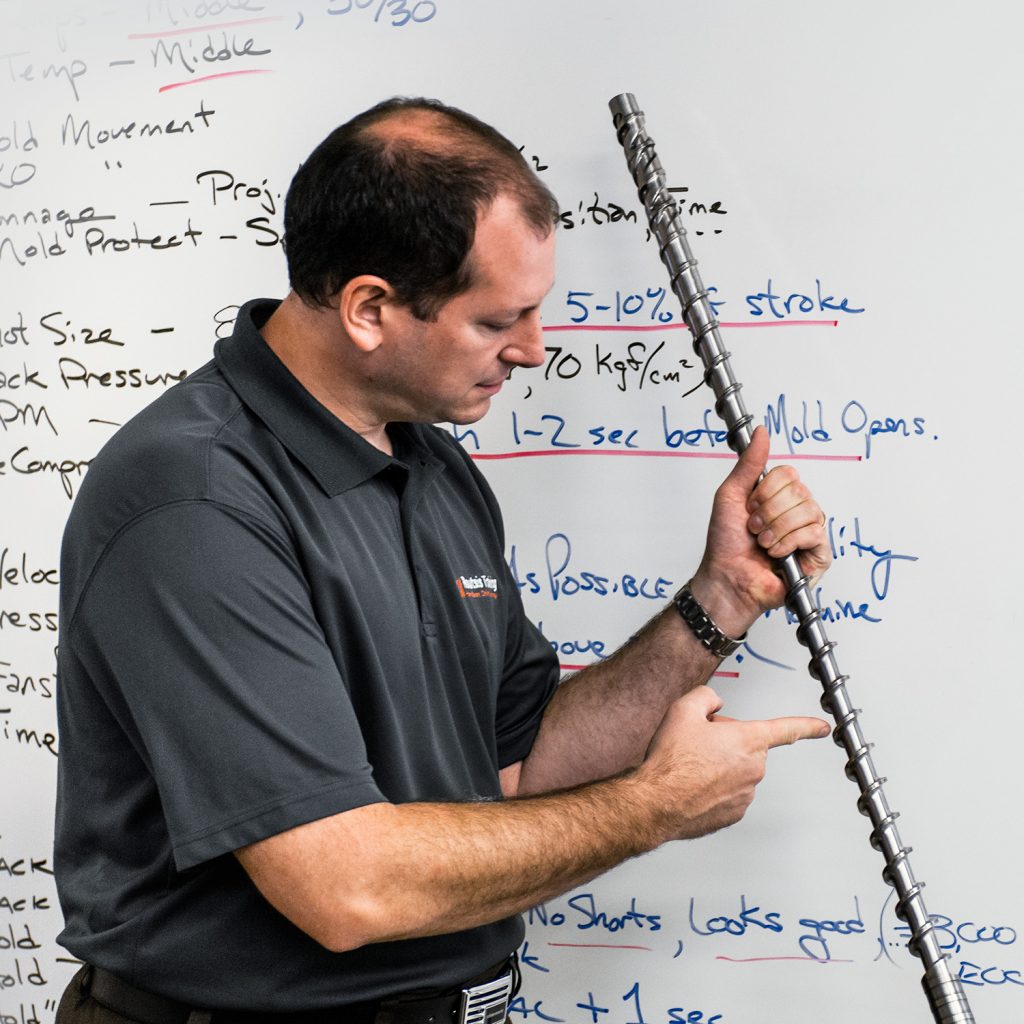Most companies understand that training is important. But what are the specific requirements you should demand from your training provider? In this post, we will look at some important aspects of a successful in-house training program — and why it’s critical to choose the right provider for your operation.
Industry Best Practices
There have been many advances in the plastics processing industry over the past 30 years: processing equipment and machinery, process controls, process documentation, processing theory, and troubleshooting techniques. The best practices of 30 years ago are not the best way to meet the ever-increasing demands of customers today.
It’s not always a matter of right and wrong with respect to processing. But your technicians and engineers must have the knowledge and skills to implement better ways to establish, document, optimize, and troubleshoot your processes.
In-House Skills Development
It is obvious that technicians need skills to do their jobs successfully. But how do they acquire these skills? Many companies send their key employees offsite for training seminars. Not only are such sessions often inconvenient and expensive, there is the question of how relevant the training is to your operation.
Every processing facility is unique. The best, most efficient, and safest way for your techs to develop advanced processing skills is to conduct the training in-house — using your company’s own production equipment, molds, and materials.
Scientific Processing Methodology
As we have discussed in previous posts, a modern manufacturing facility needs to take a scientific approach to process establishment, documentation, optimization, and troubleshooting in order to remain competitive. Your training must be focused on data-driven scientific processing.
Quality assurance can only occur when the technician ensures the process matches the documented standard each and every time the mold starts up or when troubleshooting the process.
Measurable Results
Training is not just some buzzword or busywork: It is essential to meeting customer demands and growing your company. Improvements should be obvious. And you should demand positive results from your training provider.
Unfortunately, most plastics training is focused on traditional processing techniques. Such techniques, at best, can only help you maintain the status quo. For example, most troubleshooting focuses on making process changes until the part looks good. We refer to this as ‘traditional troubleshooting’ because it revolves around simply making adjustments to the process — putting all the responsibility for good product on quality control.
The industry’s best practice is to have a Documented Standard Process to which the current process can be easily compared. The standard is then matched and maintained each and every time the process runs. This is essential to providing actual quality assurance to your customers. Training that is focused on this scientific approach will deliver results almost immediately. And it will not be difficult to see the improvement to your bottom line,
The right training will help leverage the skills of your entire production workforce and take advantage of the equipment that your company has already invested in. A skilled and confident workforce is the key to your company’s continued growth and competitiveness.
We encourage you to take a look at Routsis Training’s company-wide training in-house training systems — including our Certification Training Portals, which are the fastest, easiest way for your company to train and benchmark its employees.

0 Comments Leave a comment